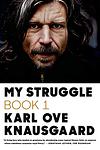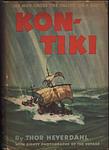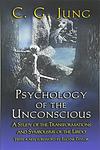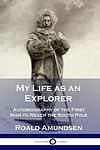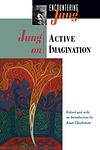The Greatest Dutch, Norwegian, Swiss "Nonfiction" Books of All Time
Click to learn how this list is calculated.
This list represents a comprehensive and trusted collection of the greatest books. Developed through a specialized algorithm, it brings together 305 'best of' book lists to form a definitive guide to the world's most acclaimed books. For those interested in how these books are chosen, additional details can be found on the rankings page.
Genres
Countries
Date Range
Reading Statistics
Click the button below to see how many of these books you've read!
Download
If you're interested in downloading this list as a CSV file for use in a spreadsheet application, you can easily do so by clicking the button below. Please note that to ensure a manageable file size and faster download, the CSV will include details for only the first 500 books.
Download-
1. The Diary of a Young Girl by Anne Frank
This book is a real-life account of a young Jewish girl hiding from the Nazis during World War II, written in diary format. The girl and her family are forced to live in a secret annex in Amsterdam for two years, during which she writes about her experiences, fears, dreams, and the onset of adolescence. The diary provides a poignant and deeply personal insight into the horrors of the Holocaust, making it a powerful testament to the human spirit.
The 60th Greatest Book of All Time -
2. The Praise of Folly by Erasmus
This satirical work is a critique of the practices of the Church and the wider social behavior of the time. Narrated by Folly, the female personification of foolishness, the book humorously criticizes various aspects of society such as superstitious religious practices, scholarly pedantry, and the excesses of the upper classes. The book is a bold critique of its time, using humor and irony to expose the follies of its society.
The 781st Greatest Book of All Time -
3. The Waning of the Middle Ages by Johan Huizinga
"The Waning of the Middle Ages" is a historical analysis of the cultural life of the late Middle Ages, particularly in France and the Low Countries, during the 14th and 15th centuries. It delves into the period's modes of thought, forms of expression, religious beliefs, and social norms. The book argues that the era was characterized by a highly stylized and overwrought civilization, marked by an excessive emphasis on chivalry and courtly love, a religious mindset dominated by the fear of death and the afterlife, and a cultural milieu that was both highly imaginative and deeply pessimistic.
The 915th Greatest Book of All Time -
4. Ethics by Baruch de Spinoza
"Ethics" is a philosophical work that explores complex ideas about God, the universe, human emotions, and the path to enlightenment. The book outlines a metaphysical, epistemological, and ethical system in which God and the universe are one and the same, rejecting traditional notions of a personal deity and asserting that understanding the natural world leads to peace of mind and happiness. The work delves into the nature of the human mind and its emotions, advocating for the pursuit of reason and knowledge to achieve a calm, enlightened state.
The 1014th Greatest Book of All Time -
5. Memories, Dreams, Reflections by Carl Jung
This book is an autobiography of a renowned psychologist who shares his life experiences, insights, and the development of his theories. The narrative delves into his childhood, his career, his relationship with Sigmund Freud, and his exploration into the human psyche. It also provides an in-depth look at the author's dreams and visions, which greatly influenced his work, and his thoughts on subjects such as life after death, reincarnation, and the collective unconscious.
The 1124th Greatest Book of All Time -
6. On Death and Dying by Elisabeth Kübler-Ross
This groundbreaking book explores the five stages of grief experienced by terminally ill patients. The author, a Swiss-American psychiatrist, introduces the concept of the five stages: denial, anger, bargaining, depression, and acceptance, which has since been universally recognized and applied in various fields. The book is based on the author's series of interviews with dying patients, providing an empathetic and insightful look into the emotional and psychological experiences of those facing death.
The 2080th Greatest Book of All Time -
7. Kon-Tiki by Thor Heyerdahl
This book is a captivating real-life adventure story about a Norwegian explorer and his crew who set out on a daring voyage across the Pacific Ocean on a balsa wood raft. The journey, undertaken to prove a controversial anthropological theory about the settlement of Polynesian islands, is filled with danger, excitement, and discovery. The author's vivid descriptions of the perilous journey, the magnificent sea life they encounter, and the ultimate success of their expedition make this a thrilling and inspiring read.
The 2687th Greatest Book of All Time -
8. Love in the Western World by Denis de Rougemont
The book is an in-depth exploration of the concept of love as it has evolved in Western society, tracing its development from the myth of Tristan and Iseult to modern times. The author argues that the idea of passionate, romantic love that is prevalent in the West is fundamentally a form of destructive passion, often leading to pain and tragedy. The book also delves into the socio-cultural aspects of love, examining how societal norms and expectations shape our understanding and experience of love.
The 2703rd Greatest Book of All Time -
9. The Bookseller of Kabul by Asne Seierstad
This book provides an intimate and eye-opening look into the everyday life of an Afghan family. The narrative follows a bookseller in Kabul, who despite the oppressive Taliban regime, courageously continues his trade. The story delves into his family dynamics, the struggles of his two wives, his children's lives, and the societal norms and customs they navigate. It paints a vivid picture of life in Afghanistan, exploring the themes of love, courage, resilience, and the power of literature.
The 2822nd Greatest Book of All Time -
10. My Struggle by Karl Ove Knausgaard
The book in question is an autobiographical novel that delves deeply into the minutiae of the author's life, exploring his personal relationships, emotions, and the everyday experiences that shape his identity. It is a candid and introspective narrative that spans across various stages of his life, from childhood to adulthood, and examines themes such as family, death, love, and ambition. The author's unflinching honesty and detailed prose invite readers to reflect on the complexities of their own lives, as he scrutinizes the ordinary moments that, collectively, define who we are.
The 3065th Greatest Book of All Time -
11. Mars by Fritz Zorn
"Mars" is a poignant autobiographical account of a young man's life and his battle with terminal cancer. The narrative delves into the author's affluent yet emotionally barren upbringing in a Swiss suburb, which he refers to as "Mars," symbolizing its cold and alienating environment. The book is a critique of his repressive bourgeois society, which he believes contributed to his psychological and physical illness. Through introspective and often angry prose, the author explores themes of alienation, the search for identity, and the impact of societal norms on individual well-being. His struggle is not only against the disease but also against the cultural and familial constraints that stifled his emotional development.
The 3158th Greatest Book of All Time -
12. Grid Systems In Graphic Design by Josef Müller-Brockmann
This book is a seminal guide to graphic design and typographic composition, focusing on the use of grid systems as a foundational tool for ensuring visual coherence and hierarchy across various design projects. It provides designers with a methodical approach to organizing text and images in a clean, logical, and aesthetically pleasing manner. Through systematic arrangement, the grid serves as an essential framework that can be applied to a wide range of design work, from print media to digital interfaces. The book delves into the principles, applications, and benefits of grid systems, offering practical advice, examples, and clear illustrations to help designers harness the power of grids to create effective, impactful visual communications.
The 3165th Greatest Book of All Time -
13. Farthest North by Fridtjof Nansen
"Farthest North" is a riveting firsthand account of a polar expedition undertaken in the late 19th century. The author, a Norwegian explorer, recounts his daring attempt to reach the North Pole by allowing his specially designed ship to be frozen into the Arctic ice and carried by the drift. The narrative includes fascinating descriptions of the Arctic environment, thrilling tales of survival against harsh conditions, and scientific observations. The expedition, although it did not reach the North Pole, achieved the highest latitude to that date and contributed significantly to Arctic exploration.
The 3623rd Greatest Book of All Time -
14. The Letters Of Vincent Van Gogh by Vincent van Gogh
"The Letters of Vincent van Gogh" is a compilation of correspondence that provides a deep and personal insight into the mind of one of the world's most famous and influential painters. Through these letters, primarily written to his brother Theo, the reader gains an intimate understanding of Van Gogh's thoughts on art, his emotional struggles, his aspirations, and the profound relationships he maintained throughout his turbulent life. The collection not only sheds light on his creative process but also reveals his reflections on existence, his financial difficulties, and his relentless pursuit of his artistic vision, offering a poignant look at his world from his own perspective.
The 3669th Greatest Book of All Time -
15. The Kon-Tiki Expedition: By Raft Across the South Seas by Thor Heyerdahl
The book is a thrilling account of a daring and adventurous expedition across the Pacific Ocean on a balsa wood raft named Kon-Tiki. The journey, led by a Norwegian explorer, is an attempt to prove that South Americans could have settled Polynesia in pre-Columbian times. The narrative is filled with descriptions of dangerous encounters with marine life, harsh weather conditions, and the challenges of surviving on the open sea. The expedition's success provides compelling evidence in support of the author's theory.
The 3791st Greatest Book of All Time -
16. Homo Ludens: A Study of the Play-Element in Culture by Johan Huizinga
"Homo Ludens: A Study of the Play-Element in Culture" is a comprehensive exploration of the significance of play in human culture. The author argues that play is not just a childhood activity but a crucial component of societal development and cultural evolution. He delves into various aspects of culture such as law, war, knowledge, poetry, and philosophy, demonstrating how each has been influenced by elements of play. The author's thesis is that understanding the role of play in our culture is essential to understanding human nature itself.
The 3791st Greatest Book of All Time -
17. Judgement and Reasoning in the Child by Jean Piaget
This book is a seminal work in the field of child psychology, exploring the ways in which children develop their cognitive abilities and reasoning skills. The author delves into the mental processes of children, focusing on how they form judgments, understand cause and effect, and develop logical thinking. The book also discusses the stages of cognitive development, highlighting the shift from intuitive to logical thinking. This influential work has greatly contributed to our understanding of child development and education.
The 4151st Greatest Book of All Time -
18. Psychology of the Unconscious by Carl Jung
"Psychology of the Unconscious" is a pioneering work that explores the complex landscape of the human unconscious, introducing theories that would later become central to understanding personality and human psychology. The book delves into the idea of the collective unconscious, archetypes, and the process of individuation. It further discusses the role of dreams, myths, and symbols in understanding and interpreting the unconscious mind. The author uses case studies and examples from various cultures to support his theories, offering a comprehensive view of the human psyche.
The 4151st Greatest Book of All Time -
19. Man and His Symbols by Carl Jung
This book is a comprehensive introduction to the world of depth psychology, exploring the significance of dreams, art, and symbols in everyday life. The author and his colleagues delve into the unconscious mind, discussing its influence on our thoughts, behaviors, and experiences. The book emphasizes the importance of understanding and interpreting symbols as a means to gain insights into our unconscious motivations, fears, and desires. It also discusses the role of archetypes and collective unconscious in shaping human behavior and culture.
The 4688th Greatest Book of All Time -
20. The Course In General Linguistics by Ferdinand de Saussure
"The Course in General Linguistics" is a foundational text in the field of linguistics that outlines the principles of structural linguistics and introduces key concepts such as the linguistic sign, the distinction between langue (language as a system) and parole (language as used in context), and the idea of synchronic versus diachronic analysis. The work emphasizes the arbitrary nature of the sign, which consists of the signifier (the form of the word or phrase) and the signified (the conceptual meaning). This book, compiled from notes by students from the lectures given by its author, has had a profound impact on the development of linguistic theory and has influenced various other disciplines, including anthropology, psychology, and literary theory.
The 5517th Greatest Book of All Time -
21. The Civilization Of The Renaissance In Italy by Jacob Burckhardt
"The Civilization of the Renaissance in Italy" is a seminal work that explores the Italian Renaissance from the 14th to the 16th century, a period marked by significant cultural, artistic, and political developments. The book delves into the revival of antiquity, the rise of individualism, and the secularization of society, examining how these factors influenced the transformation of various aspects of Italian life, including art, politics, and religion. Through a detailed analysis of the period, the author illustrates how the Renaissance represented a break from the traditions of the Middle Ages and laid the groundwork for the modern age.
The 5517th Greatest Book of All Time -
22. The South Pole by Roald Amundsen
The book is a detailed firsthand account of the first successful expedition to the South Pole, led by the author, a noted Norwegian explorer. It chronicles the meticulous planning, the journey's challenges, and the strategic decisions that enabled the team to reach the pole on December 14, 1911, ahead of their British rivals. The narrative combines personal reflections, vivid descriptions of the harsh Antarctic environment, and insights into the teamwork and innovation crucial for survival and success in one of the most extreme climates on Earth.
The 5517th Greatest Book of All Time -
23. Infidel by Ayaan Hirsi Ali
The book is a powerful memoir of a woman who was born into a traditional Muslim family in Somalia. She recounts her experiences of growing up in a strict Islamic culture, female genital mutilation, civil war, fleeing to the Netherlands as a refugee, and her eventual rejection of her faith after witnessing its violent and oppressive nature. The book also follows her journey into politics and advocacy for women's rights and her efforts to reform Islam. It's a tale of courage, resilience, and the quest for freedom and truth.
The 5724th Greatest Book of All Time -
24. Two Essays on Analytical Psychology by Carl Jung
This book contains two comprehensive essays that delve into the depths of analytical psychology. The first essay explores the role of the unconscious in the human psyche, discussing its influence on dreams, mythology, and mental illnesses. The second essay delves into the process of individuation, which is the psychological process of integrating the conscious and unconscious parts of the mind to achieve self-actualization. This work is a foundational text in understanding the theories and concepts of analytical psychology.
The 5738th Greatest Book of All Time -
25. The Portable Jung by Carl Jung
"The Portable Jung" is a comprehensive collection that encapsulates the core ideas of analytical psychology, as developed by its founder. The book offers a selection of writings that delve into the concepts of the collective unconscious, archetypes, dreams, and individuation. It serves as an accessible introduction to Jung's transformative ideas on the psyche, providing readers with insights into the depths of human behavior and the psychological underpinnings that influence personal growth and understanding. This compilation not only highlights Jung's profound influence on psychology but also his interdisciplinary reach into areas such as mythology, religion, and culture.
The 6304th Greatest Book of All Time
Reading Statistics
Click the button below to see how many of these books you've read!
Download
If you're interested in downloading this list as a CSV file for use in a spreadsheet application, you can easily do so by clicking the button below. Please note that to ensure a manageable file size and faster download, the CSV will include details for only the first 500 books.
Download








